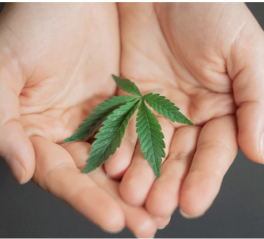CAUSES / PREDISPOSITIONS
Insomnia can result from a number of factors such as:
- Age (60 and over)
- Gender (More Common in Females)
- Stress/Trauma
- Travel
- Work/Social Schedules
- Excessive Caffeine Intake
- Excessive Alcohol Consumption
- Eating Before Bed
- Side Effects of Certain Medications
Additionally, certain medical conditions can contribute to insomnia, such as:
- Chronic Pain
- Anxiety
- Depression
- Cancer
- Heart Disease
- Gastro-Esophageal Reflux Disease
- Overactive Thyroid
Symptoms
Patients suffering from insomnia often experience a worsening cycle of sleep disturbance that grows in severity over time if left untreated.
Common Symptoms Include:
- Sleep Latency
- Waking Frequently
- Waking Early
- Excessive Somnolence
- Loss of Concentration/Focus
- Impaired Memory
- Daytime Irritability
- Increased Risk of Injury
Insomnia has also been linked to:
- Increased Risk of Developing Type 2 Diabetes
- High Blood Pressure
- Heart Disease
- Increased Risk of Mental Health Issues (Depression, Anxiety)
- Poor Work Performance
- Limited Social Interactions
Traditional Treatments
Sleep disturbance is often the result of other underlying medical condition(s) and as such the focus of treatment should first be on these condition(s).
Lifestyle
- Avoiding/Reducing Caffeine Intake
- Adequately Comfortable Mattress/Pillow
- Limiting Evening Screen Time
- Limiting Late Night Food Intake
- Maintaining Regular Night Time Routines
- Meditative and/or Deep Breathing Exercises
- Regular Exercise
- Stress Management
Medications
- Sleeping Pills – These medications can provide short term benefits, however patients may experience a reduction in effectiveness over the long term, as well as the potential for addiction.
- Melatonin – The body’s natural sleep hormone.
Treatment with Cannabis Medicine
Patient use of cannabis medicine is associated with significant improvements in perceived insomnia. Studies have shown that THC and CBN can have sedating effects on the body and can decrease sleep latency. However, there is the potential for long-term impairment of sleep quality from prolonged use of THC. Research also suggests that CBD may be beneficial in cases where sleep disturbance is linked to anxiety-related disorders. CBD may also induce alertness, which can be of therapeutic value for symptoms such as excessive somnolence. Patients using cannabis to treat sleep disturbance also commonly report significant reductions in the use of traditional sleep medications.
The overall effect of cannabis medicine on sleep can be dependent on factors such as cannabinoids used, dosage, and delivery method. Additional research is needed to fully understand the therapeutic potentials and possible side effects of cannabis as a treatment for insomnia.
Recommended Intake Method(s)
- Edible Oils – Preferred method when staying asleep is of concern due to extended duration.
- Inhalation via Vaporizer – preferred method when falling asleep is more of concern than staying asleep due to fast onset.
Recommended Product Formulations
- Products containing only THC.
- Products containing ratios of 2:1, 1:1 or 1:2 THC to CBD.
Notable Terpenes
- Myrcene – Analgesic, Sedating
- Caryophyllene – Anti-Anxiety, Analgesic
- Linalool – Anti-Anxiety, Analgesic





